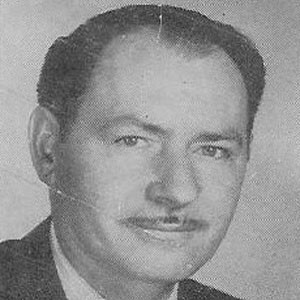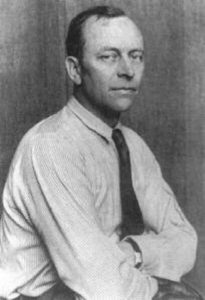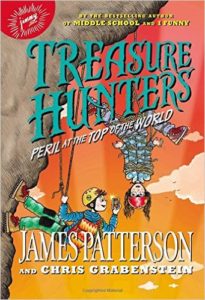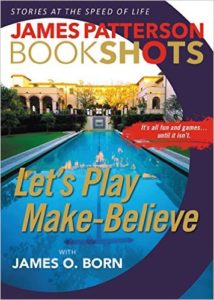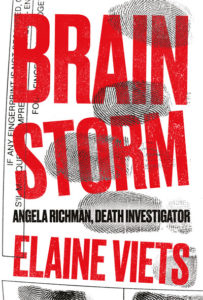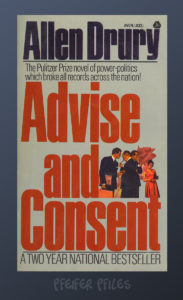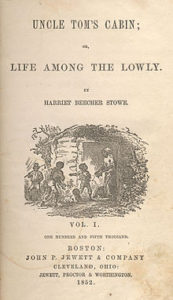by Larry Brooks
These four nasty little traps would still be weaknesses if they appeared in the novels of more experienced professional writers. But for the most part, those writers don’t commit these mistakes. Which defines the window of opportunity for newer writers – to understand what they’re doing and how they do it.
And how that differs from where your story is, at any given moment. Especially when you believe you are done.
It is important to remember that when you read a novel from a proven professional, you’re reading a polished, pounded upon, tested and fortified final draft. The story may have been riddled with problems in the early stages, draft after draft, so don’t assume these pitfalls are unique to the newer writer.
Established authors have agents and editors for this purpose, newer writers don’t. And they bring their 10,000 hours of apprenticeship to the task, which probably exceeds your resume by orders of magnitude.
A few workshops won’t get you there. Those 10,000 hours, along with the criteria-driven, modeled craft held up as the target, just might.
If I wanted to read fully realized, polished stories all day long, I’d be a book reviewer instead.
I do read a lot of work from folks who are terrific writers… if the composition of sentences and paragraphs is the benchmark for that description.
But the thing is, it isn’t.
Where writing novels is concerned, a terrific writer is judged by the story more than the prose. And because they are two different skill sets, one doesn’t necessarily beget the other.
A story is so much more than a sequence of paragraphs composed of sentences. In the same way that a house is composed of so much more than a bunch of wood planks nailed together. Really strong, beautiful two-by-fours do not a functional, aesthetically-pleasing house make. There is more to is than the wood itself, and much of it isn’t visible to the eye, because it resides in the infrastructure of the building.
Such is the story sensibility the new writer often lacks.
Allow me to summarize what too often comes up short:
One: The writer doesn’t understand what a premise is.They confuse it with other story essences, like concept and theme and backstory.
The project I worked on this morning answered the question, What is your premise? with this:
Here is my copy for the back cover of the paperback for my story.
A red flag, this. The author has the back cover copy done, but the novel itself is still in the incubator.
Rarely is what we read on the back cover a premise. It’s marketing copy.
In the name of offering a solution today, here is the definition of premise, which becomes a sort of checklist for the entire story itself:
A protagonist/hero whose current life (which we get a glimpse of, and perhaps a bit of background for) is interrupted, disrupted or leads into… a specific problem, need or opportunity… launching a hero’s quest with a mission and a specific desired outcome, beginning with a response to the need or problem… for reasons (stakes) that compel the character to respond… in the presence of opposition from an antagonistic force or person(s) with opposing goals and their own motivations… calling for higher and stronger responses and course of action, often with those stakes evolving into something darker or more urgent… leading toward brilliant and courageous resolution resulting from the Hero’s decisions and actions… leading toward a specific outcome, returning the hero to a life that is contextually different than where the story began.
Two: While the story is deeply rooted in genre, the writer is more focused – too focused – on characterization and theme and backstory than the forward-facing dramatic arc and tropes of that genre.
In other words, the story is either episodic or completely void of a hero’s quest/mission, undertaken because of what is at stake and a sense of urgency. It links to genre only by virtue of setting and context, rather than actionable drama and stakes.
In yet more other words… there is no compelling plot. A dramatic question in play. Which is what the premise, when done properly, describes.
“Finding his true self,” or “forgiving the past” are both really bad, really lame hero’s quests. Those are character arc goals and outcomes, but they are not the raw grist of a story. Because in genre, a story is about more than the arc of the character. Rather, it is about what the hero does to reach those goals, decisions and actions and confrontations that are dramatic and full of risk and conflict.
This is the stuff of premise. The meat and potatoes of narrative.
From a dramatic standpoint (rather than thematic), was The Hunger Games about Katniss finding true love? No. It was about getting out of that arena without someone planting an ax blade in her skull.
In genre fiction, story lives and dies by its drama, driven by conflict. Leave the thematic analysis and character depth to the reviewers, all of that is an outcome of how the character responds to the drama into which you’ve dropped them. It’s your job to make it work, that’s true, but without a compelling dramatic arc in play, all of itwill be lost on your reader.
If you are writing in a genre – thriller, mystery, romance, fantasy, including mash-ups between them – the need for plot is non-negotiable. And a plot is subject to certain expectations and criteria – an author doesn’t get to redefine what the word “plot” means – which is what the new writer too often misses.
A newer writer’s story might play as “the adventures of…” which doesn’t work in genre. Michael Connelly’s novels are not the adventures of Harry Bosch. Rather, there is a case to solve, a single pursuit of a perp and of justice, complicated by other pressuring layers of subplot and subtext, including an antagonist/villain.
All of it defining character, by giving your hero something to do.
The life story of a fictional character may work in literary fiction, but not here.
Three: There isn’t sufficient emotional resonance that gives the reader something to root for.
I read a time travel story recently (when I say story, I mean a narrative plan submitted to me for analysis) in which two girls go back in time (never mind how) to… wait for it… ogle men wearing kilts. That’s it. That’s all there is to it.
This was a romance, which the author argued licensed any lack of thematic weight. I disagreed. The difference is like an episode of Ray Donovan versus an episode of The Housewives of New Jersey.
The dramatic stakes were fine – one of the girls goes missing back in time – and it seemed like everybody was falling in lustful love with everyone else as they looked for her. The hero sister trying to find her lost sibling was really more interested in the butt of the plantation owner’s son.
The question remained unclear, and unanswered: Why? Who cares? Especially when, after one sister finds the other, they both decide to remain stuck in 16th century Scotland. Because those guys in kilts, they’re freaking hot.
Not something a more experienced writer would have chosen.
Four: The story lacks a compelling conceptual core.
The key word here is compelling.
The story idea is flat. The premise seems to be searching for something compelling, hoping to land there – as if the writer, when alerted to the fact that the story is flat, would say, “But when I write it you’ll see, it’ll all come alive when you read it on the page” – rather than stemming from something compelling. Like a killer story arena, or a character we’ve never seen before.
I just finished coaching a story that basically read like this: a normal guy lives in an ancient town, next to another ancient town full of bad people. The bad people want to attack his town because they are located closer to the water, which provides access to trade and sustenance. That’s the setup. So our guy, the hero, organizes a militia of other every day guys, and when the bad people attack, he leads them to victory, battle after battle after… many more battles. Meanwhile, there is a magic stone that only he can understand, which turns him into a great warrior. After the victory, they name him as their king, and everyone lives happily ever after.
I told him it doesn’t really work, at least at the pitch level. There isn’t an agent in the business that would say to this, “Dude, I’ve been waiting all year for a story like this, you’ve got to send it to me!” More likely they’d say, “I’ve seen twelve of these this week alone. Nothing special here, this is generic. Been there, read that, didn’t like then, either.”
It doesn’t glow in the dark. There’s nothing conceptual. Nothing that makes a reader say, “Holy cow, this is the type of story I’ve been waiting for, I can’t wait to read this!”
Which is one of the benchmarks of a great concept, and a premise built from it.
The story idea isn’t strong enough. At least not yet. The writer has committed to it too soon, perhaps without fully understanding what does make a story idea glow in the dark.
The whole point — the difference between the newer writer and the successful more experienced one — is story sense. The ability to recognize what works and what doesn’t, based on criteria that never change.
Don’t depend on your writing to make it glow in the dark. Because chances are, while you’re really good and your sentences make your Aunt Mabel rave about your emails, that talent is a dime-a-dozen in the universe of writers who are trying to do what you’re trying to do.
Make no mistake, such stories can work. But when they do, there is more going on than the thin shell of a story that this example describes.
Game of Thrones is compelling because of the characters and the setting. Which on paper, is rarely enough. Which renders it an exception, not the thing you should set out to emulate. It’s like telling young athletes to be like Mike. Do what Mike does.
Michael Jordan, that is.
In the story described, there is nothing conceptual about that guy in the town with the magic stone, or anyone else in the cast (swap out compelling for conceptual, which will help clarify). No Mother of Dragons. No White Walkers. No John Snow. No ruthless, seductive Queen. Nothing with the vividly drawn landscape of Westeros. No sex. No violence. No OMG! moments. Nothing like the other 45 characters that leap off the G.O.T. pages and scream, I am conceptual and you will learn to love me, even if you hate me!
Writing a saga is tough work, advanced work. Harry Potter was not a saga, it was a series, which is different. Newer writers not only need to understand the difference, but also the depth of craft and structure required to make such a story work.
There is a line you cross, somewhere among those 10,000 hours, when you know you’re no longer a newer writer.
That you’re in the game for real, and that you have a real shot, because you understand the game itself in a way that you didn’t before.
It’s all there, in that definition of premise. When you own it, completely and thoroughly, including what resides between those lines, it will propel you to the finish line. Because owning it doesn’t mean simply executing on it, but doing so with power and flair, with dramatic weight, conceptual appeal and thematic substance.
All beginning with a truly killer story idea. Which will look different to you – the bar will be higher – once you’ve crossed that line.
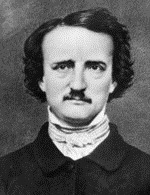 even if he didn’t really say it, he should have. So let’s figure out what Mr. Poe might have been suggesting. My interpretation is that there is always a solution to a writing issue. And one of the biggest issues new writers (and old) have is getting stuck without an idea what to do next. Poe suggests doing something drastic.
even if he didn’t really say it, he should have. So let’s figure out what Mr. Poe might have been suggesting. My interpretation is that there is always a solution to a writing issue. And one of the biggest issues new writers (and old) have is getting stuck without an idea what to do next. Poe suggests doing something drastic. 

